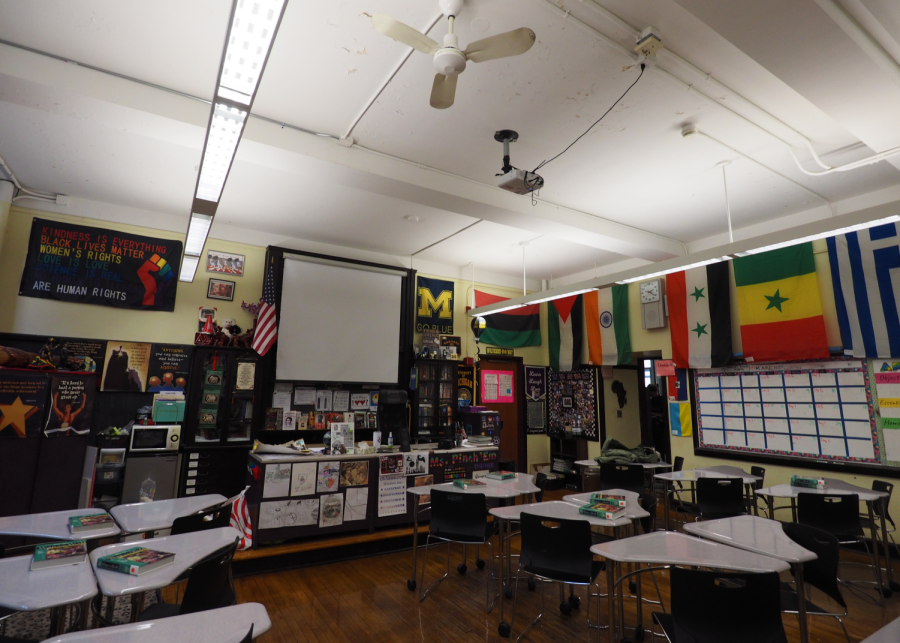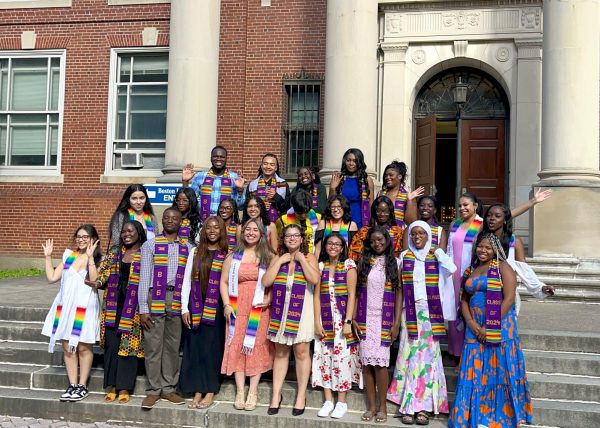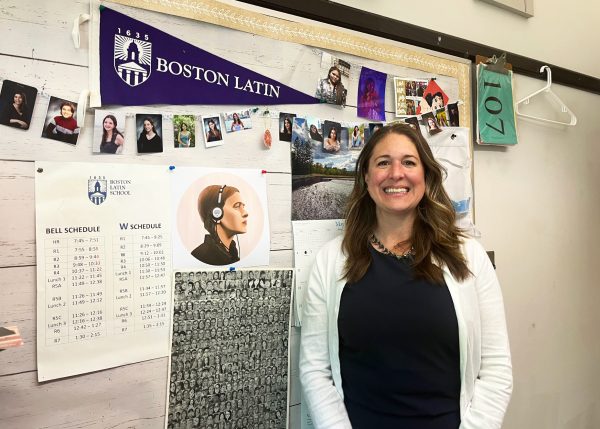History Courses Extend Across the Globe
The Boston Latin School history department will introduce two new courses for the upcoming 2023-2024 school year: AP African American Studies and Modern Asian Studies.
AP African American Studies
The AP African American Studies is an interdisciplinary course, drawing on a range of academic fields. This course, available to all students in Classes I and II, will be taught by Mr. Brian Smith and Ms. Cheralyn Pinchem.
Offered as a pilot course by the College Board, it provides students with the benefits of a GPA boost and comprehensive AP-level material — much like regular AP courses — but without the stress-inducing AP test at the end of the year.
Although BLS already offers an African American Studies course, it will now be one of the 60 schools in the nation implementing it as an AP course for the next school year. Ms. Pinchem initially recommended implementing AP African American Studies to the Head of School. Former Head of School Rachel Skerritt and current Head of School Jason Gallagher were both supportive of adding the new course. Mr. Smith comments that offering the course, which teaches highly specialized material at the college level, was also a progressive move for the College Board.
The course curriculum consists of four units: “Origins of the African Diaspora,” “Freedom, Enslavement, and Resistance,” “The Practice of Freedom” and “Movements and Debates.” The course will also feature various supplemental field trips to significant African American monuments, providing students with a deeper understanding of the experiences and contributions of African Americans throughout American history.
“From a historical perspective, it is important to understand how […] the Black experience has shaped all of the opportunities that all groups enjoy today,” says Mr. Smith.
The implementation of the new curriculum, however, is surrounded by heavy controversy. According to Politico, Governor Ron DeSantis (R-FL) has criticized the course material for being “woke” and an exercise in “indoctrination.” Specifically, he objected to lessons on Black queer studies, feminism, intersectionality and Black Lives Matter for being “contrary to Florida law.” He cited laws which the state passed in 2022 that restrict the teaching of race, sexual orientation and gender identity –– the Stop WOKE Act and the “Don’t Say Gay” bill. Therefore, Governor DeSantis has banned Florida public schools from offering AP African American Studies to students.
Supporters of the Florida laws argue that it is necessary to prevent the teaching of divisive or politically biased materials in public schools. Critics, however, argue that it is an attempt to whitewash history and restrict the discussion of important historical events central to American society.
Oriana Dunker (III), who plans on taking the course next year, offers her perspective: “I think that this curriculum is completely nonpartisan. And if you take out crucial information about race and about the Black experience in America, to preserve American history, you’re doing the exact opposite.”
After the first round of piloting, the official curriculum of the new AP African American Studies course was released by the College Board on February 1, 2023. According to The New York Times, changes made to the original draft include the omission of several secondary sources, as it is ‘“quite dense” and that students connected more with primary sources.”
Additional changes are more particularly controversial, including the exclusion of the lessons that Governor DeSantis took issue with, as well as high-profile analysts and writers associated with modern topics such as feminism and Black Lives Matter. Instead, the curriculum saw the incorporation of “Black conservatism” as a research topic. Despite allegations from The New York Times, College Board officials defend that the changes are not a result of the criticisms by the Florida Department of Education, but were corroborated well before the governor’s publicized criticisms.
Dunker says, “From what I’ve seen so far, I do side with the fact that the course and the edits made to the course after the pilot session was not made in response to the kickback from the governor of Florida.”
Despite the controversy, BLS is still one of several schools across the country to pilot this course.
Mr. Smith encourages students to take this course: “African American Studies tells the beauty and the beautiful struggle, but [also the] beautiful resilience and culture that has been those of African descent to this country since day one. […] It’s just one snapshot of one group in American history that all of us can learn from.”
Modern Asian Studies
The Modern Asian Studies course, taught by Mr. Andy Zou, will provide juniors and seniors with a panoramic overview of the history and development of Asia, connecting it back to contemporary and modern political and economical issues.
Mr. Zou explains, “I’ve had students come up and ask, ‘Are we ever going to have a course about Asian Studies? Are we ever going to learn more about Asia besides surface level and regions of Asia that never get talked about?’”
In response to high student demand, he proposed the course to the History Department Program Director Mr. Thomas Kennelly and received a warm reception from both the Head of School and other Department Heads.
Mr. Zou adds, “The big theme is really to understand […] these really diverse groups of Asian people such as China, Japan, Korea, of course, and little known and not as covered as much of within the curriculum, even at BLS, such as Vietnam, Cambodia […] so that students can walk away with a grander understanding of many, many people. Really half the people on Earth are from the Asian continent as well, so I feel that they’ll be more well-rounded individuals and more civically-engaged and socially-responsible young people.”
The course will offer additional opportunities to learn topics in Asian Studies in more depth than in a typical world history course, even covering unconventional topics such as anime and K-pop. To supplement the materials, the class will analyze primary and secondary sources, current event articles and literature to better understand Asian perspectives from the last two centuries.
Nha Truong (I), co-president of BLS Asian Students in Action, shares, “It’s a really amazing thing that they explore all of these different cultures now. And especially for Asian culture, I know that there are a lot of different ethnicities and countries that get involved. […] I’m glad that along with making the student body more diverse, they’re hoping to make the course selections more diverse as well.”






